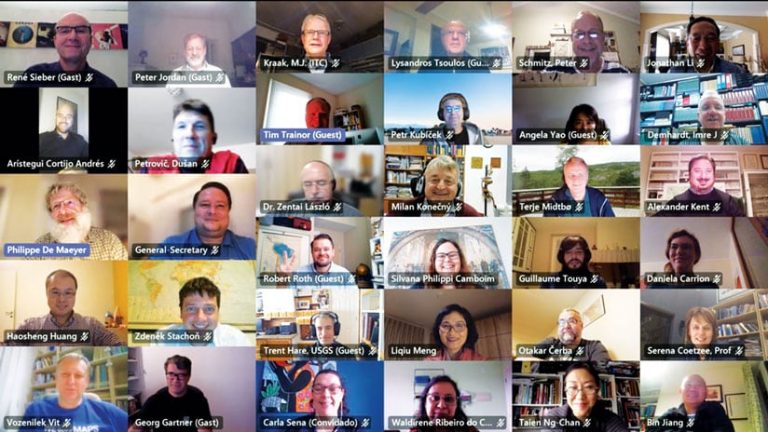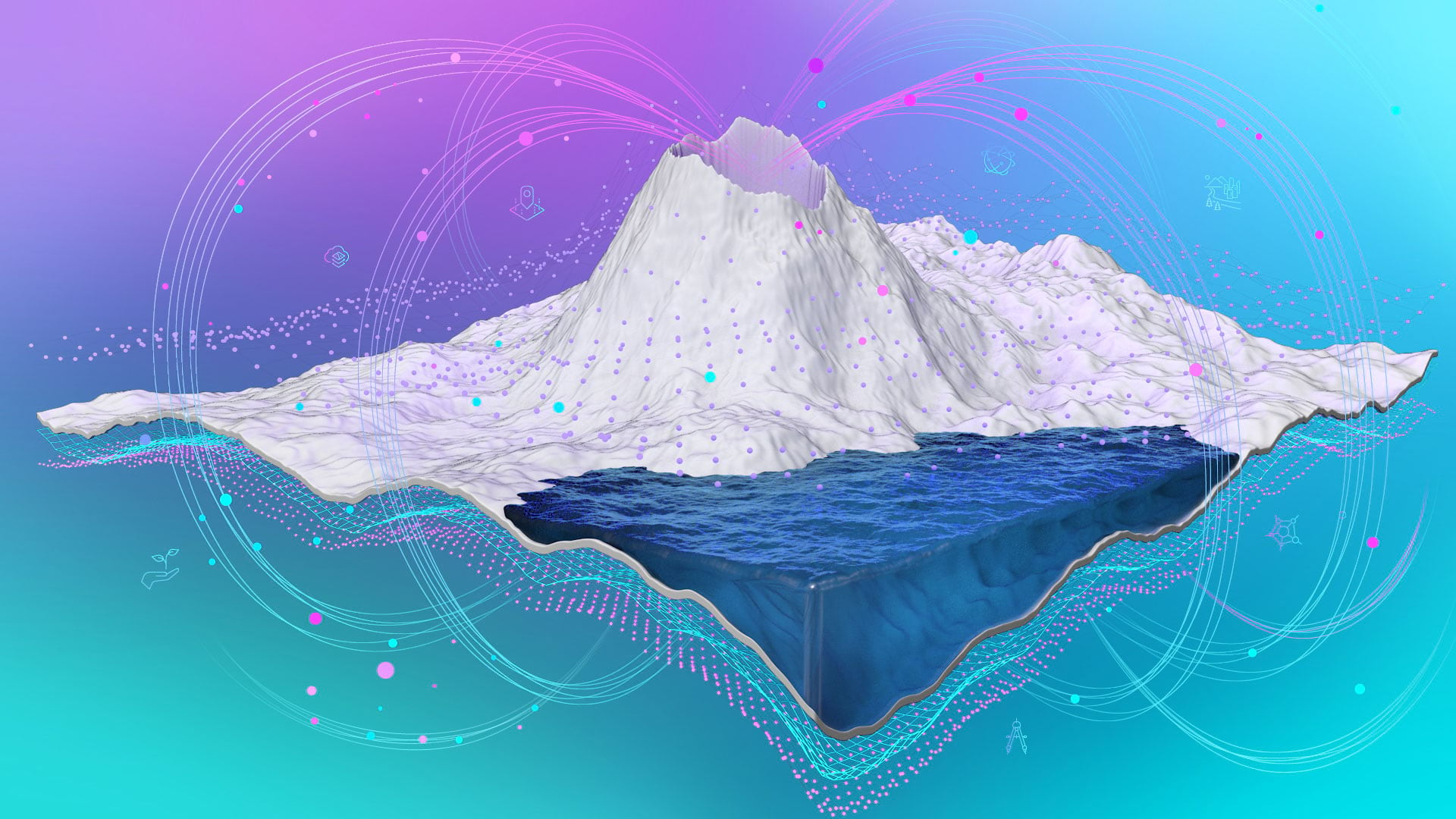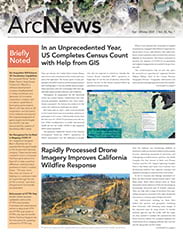Everyone’s life has been altered in some way as we all grapple with the impacts of the COVID-19 pandemic. The International Cartographic Association (ICA)—like most professional organizations around the world—has also been affected. In the challenging times we’re experiencing, it’s important to establish routines that give us a sense of balance. Staying the course wherever possible can help us feel a sense of normalcy.
To that extent, the ICA program continues through the various outlets of participation available to those interested in cartography and geographic information science (GIScience). The ICA’s commissions and working groups persist in their efforts to advance many diverse topics. And cartographic research and professional practice continue via remote locations—often at home—and are reported through the ICA’s many communication channels, including the International Journal of Cartography, ICA News, eCARTO News, and the ICA website.
One area that has been significantly altered by COVID-19 is the opportunity to meet in person with colleagues from far reaches of the globe. Special moments of engaging in conversation; sharing a meal; having a coffee; and listening to interesting ideas, thoughts, developments, and experiences are a tragic loss. For the ICA, this means that conferences, commission meetings, and workshops have been greatly impacted. In a few areas around the world where authorities have been highly effective in managing the virus, local events have taken place—and this offers a road map for future behavior during the pandemic.
A flagship event for the ICA is the International Cartographic Conference (ICC), which is held every two years in a different location. The next ICC is planned for Florence, Italy, later this year. The Italian Cartographic Society and the Florence Local Organizing Committee have worked tirelessly to plan, monitor, and adjust the event, though we are still not sure what the coming months will look like. At the end of 2020, as scientists predicted, COVID-19 cases were rising in many parts of the world, and everyone needed to take precautions to prevent further spread of the virus. Within that reality, the ICA deemed that the original plan of meeting in July was too risky. Based on suggestions by Italian officials and an evaluation done by the ICA Executive Committee, ICC 2021 has, for now, been delayed until December 13–17, 2021, but will still take place in Florence. For more current information, it’s best to periodically check the ICA website.
With every challenge comes opportunities. So we should all seize the moment and figure out how we can expand our options for advancing cartography and GIScience right now. COVID-19 has proven that location information is critical for managing every aspect of the virus’s impacts, from its effects on public health to widespread economic consequences. Maps are helping people understand so many aspects of the pandemic. They inform us of cases, trends, and repercussions and can guide good decision-making when it comes to monitoring, controlling, and preventing outbreaks and taking corrective actions. Looking toward the future, new opportunities will come about where cartography can play an important role.
Along this journey, the ICA commission chairs met virtually in late October to share their recent achievements and plans for upcoming events. Now that we are limited to a virtual world, ICA commissions are testing and using different technologies to advance their programs. One outcome of that session was to schedule monthly webinars, available to everyone, on topics related to each commission’s theme. Again, visit the ICA website for details on these events.

Another mainstay of the ICA is the Barbara Petchenik Children’s World Map Drawing Competition, a biennial map drawing contest that encourages children in different age groups to create their own representation of some aspect of the world in graphic form. The ICA created this as a memorial to Barbara Petchenik, a cartographer and past vice president of the ICA who maintained an enduring interest in maps for children. This year, the theme is A Map of My Future World—a topic that was selected based on suggestions from 17 countries. There are no significant rule changes for the competition in 2021, and participants have until September 1 to submit their maps. We encourage all ICA national members to participate. Find more details about the Barbara Petchenik Children’s World Map Drawing Competition.
In addition, Regional Cartographic Conferences (RCCs) offer opportunities for several countries to organize, meet, and share current and recent work from area cartographers and GIScience professionals. EuroCarto 2020, organized by Austria, Germany, and Switzerland, moved to an online forum rather than meeting in Vienna, Austria. While participants lamented not being in the city of music and dreams, they experienced the benefits of a robust program, free of charge. Approximately 420 participants from 55 countries attended, including participants from outside the discipline. Program highlights consisted of keynote presentations, larger thematic sessions, and shorter spotlight sessions. View all abstracts and access recorded videos.
The nature of virtual meetings and conferences is having a positive effect on inclusion. Many events are complimentary and, oftentimes, open to everyone. This is particularly helpful for people who don’t have the means to travel to cartographic conferences—especially those who live in developing countries. They can now sign in to events online and participate, share their work, and expand their knowledge with colleagues around the world.
National and affiliate members of the ICA are helping the association stay the course as well by communicating ICA updates through their own channels and, in some cases, increasing participation at and adding sponsorship to commission events. While national members represent their respective countries, affiliate members have a special interest in the ICA and contribute their expertise to the organization. Affiliate members come from diverse organizations, including private companies with either a national or international focus, educational institutions, government departments or agencies, and scientific organizations.
As we continue to navigate the COVID-19 pandemic, let us all ensure that we stay the course in our daily responsibilities and commitments so we can continue to provide the cartographic and GIScience expertise that people expect from us. Fulfilling our roles contributes to those around us and helps achieve some sort of stability in these challenging times. Beyond these efforts to sustain an environment of normalcy, this period also offers opportunities to seize the moment to explore, collaborate, support, study, and research different topics within our discipline that can change the world for the better. So let’s join together as part of the ICA family to collaborate and seek out opportunities that advance the good work the ICA does.


